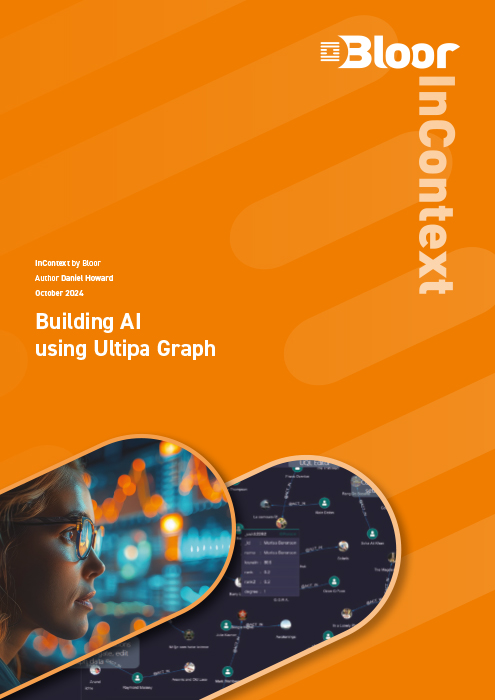Building AI using Ultipa Graph
2024 Bloor, All Rights Reserved.
Classification
Graph databases have grown increasingly popular over recent years, as more and more relevant use cases are found that are difficult or even practically impossible to address with relational database management systems (RDBMS). This is because graph databases centre the interconnected nature of real-world data even more so than RDBMS, such that when you care about modelling and querying anything more complicated than a simple, direct relationship, at scale, you had best turn to graph. The aforementioned use cases include social network analysis, tracking complex medical (often drug) interactions, semantic analysis, and AI/ML (machine learning).
The latter is particularly interesting given its recent rise in popularity, both over the last several years as a general trend and the surge that has occurred more recently as hype for generative AI (which is to say, AI powered by OpenAI and other large language models) has snowballed. It is also the primary subject of this paper, in which we intend to examine the interplay that can occur between graph and AI technology, as well as provide some context for the challenges faced in the graph space. We will also highlight a particularly effective example of addressing this interplay, namely Ultipa, a relatively recent addition to the graph scene.
Research By
Related Technologies
Related Companies
Connect with Us
Ready to Get Started
Learn how Bloor Research can support your organization’s journey toward a smarter, more secure future."
Connect with us Join Our Community


